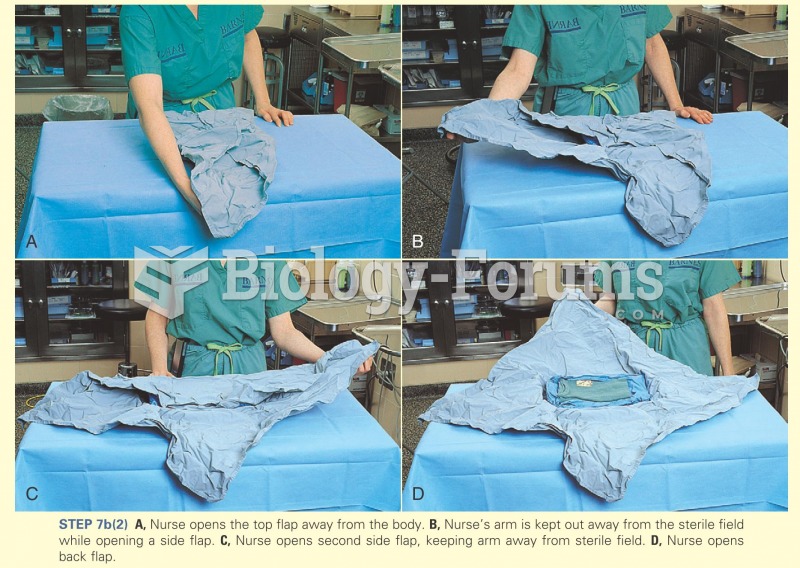|
|
|
People about to have surgery must tell their health care providers about all supplements they take.
Increased intake of vitamin D has been shown to reduce fractures up to 25% in older people.
To maintain good kidney function, you should drink at least 3 quarts of water daily. Water dilutes urine and helps prevent concentrations of salts and minerals that can lead to kidney stone formation. Chronic dehydration is a major contributor to the development of kidney stones.
For pediatric patients, intravenous fluids are the most commonly cited products involved in medication errors that are reported to the USP.
No drugs are available to relieve parathyroid disease. Parathyroid disease is caused by a parathyroid tumor, and it needs to be removed by surgery.







